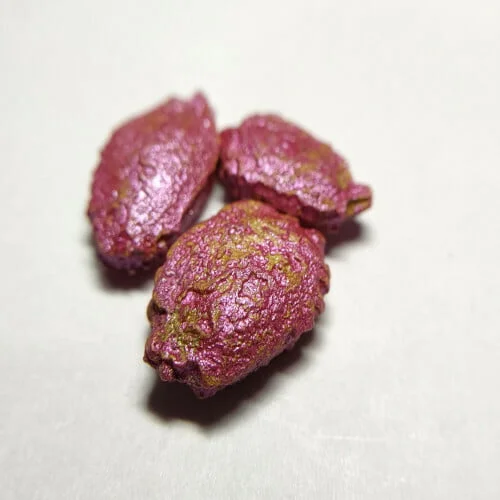Bitter Gourd Seeds (5 seeds)
₹10.0
Bitter gourd is a bitter vegetable rich in vitamins and minerals required for our health. Try our Non-GMO Bitter Gourd Seeds. Also, check out our workshops for more details.
PRODUCT DESCRIPTION
Number of seeds in a packet – 5
PLANT DESCRIPTION
- Difficulty Level – easy
- Plant Height – 6 – 7 feet
- Type – outdoor
- Feed – Vermicompost for nutrients every week, Seaweed once a month for greener leaves, and Epsom salt for better blooming once a month
- Watering – every day
- Sunlight – full sunlight
- Germination Time – 1 week
- Fruiting Time – 7 weeks
- Harvesting Time – 8 weeks
- Suitable Temperature – 60°F – 70°F
- Season – annual
- Sowing – summer
HOW TO GROW BITTER GOURD FROM SEEDS
- Take a Seedling Tray and fill it with Cocopeat.
- Make ½ inch deep hole and put 4 seeds in each hole.
- Fill the hole with Cocopeat and spray with water using a spray gun or spray bottle.
- Keep the soil moist, not soggy.
- Seeds will germinate within a week.
- Re-pot the sapling to a Medium Size Pot in 2 weeks.
- Full sunlight is needed.
- The time to harvest is 8 weeks.
ALTERNATE METHOD
- Take a Medium Size Pot and add a Potting Mix.
- If planting in the soil add Neem Cake Powder, Vermicompost, and Seaweed.
ALTERNATE NAME
Botanical name: Momordica charantia
bitter gourd seed in hindi: karela beej (करेला बीज)
bitter gourd seed in tamil: pakarkay vitai (பாகற்காய் விதை)
bitter gourd seed in telugu: cedu potlakaya vittanam (చేదు పొట్లకాయ విత్తనం)
bitter gourd seed in kannada: hagalakayi bija (ಹಾಗಲಕಾಯಿ ಬೀಜ)
bitter gourd seed in marathi: kadu biyane (कडू बियाणे)
bitter gourd seed in malayalam: kaypakka vithu (കയ്പക്ക വിത്ത്)
Other names: Bitter-melon..





















Reviews
There are no reviews yet.